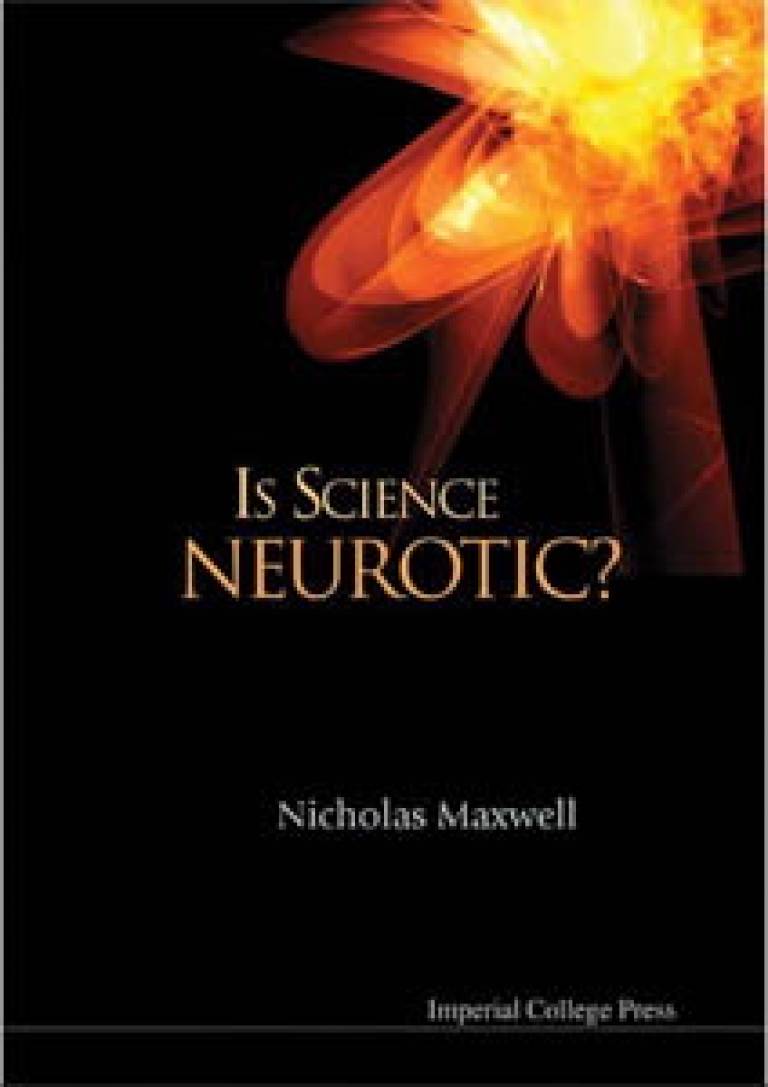Is science neurotic?
14 January 2005
A new book written by UCL academic Nicholas Maxwell (Science & Technology Studies) argues that there needs to be a revolution in the aims and methods of science.
 Is Science Neurotic? calls for a root and
branch change in the way science is taught and discussed.
Is Science Neurotic? calls for a root and
branch change in the way science is taught and discussed.
Is Science Neurotic? is a departure from orthodox critiques of science, which include the Romantic and postmodern rejection of Enlightenment ideals, feminist critiques of science, and the Romantic wing of the green movement. Maxwell says: "The criticisms of science I develop in the book are diametrically opposed to these orthodoxies, in so far as they oppose scientific rationality, seek to diminish or restrict its influence, or hold that it is unattainable. My central point is that we suffer, not from too much scientific rationality, but from not enough."
Maxwell believes science is suffering from a 'rationalistic neurosis' which is ultimately a threat to humanity. "One of the most damaging features of rationalistic neurosis is that it has built-in methodological and institutional mechanisms which effectively conceal that anything is wrong", he explains.
Beginning with a discussion of the aims and methods of natural science, the book then extends its reach to include social science, philosophy, education, psychoanalytic theory and academic enquiry as a whole, all the while arguing that science would be of greater human value if it were more rigorous.
"It is not reason that is damaging, but defective pretensions to reason - rationalistic neurosis masquerading as reason. What I seek to do in the book is the exact opposite of what all those who oppose science and scientific rationality do. I argue that reason, the authentic article, arrived at by generalising the progress-achieving methods of science, can have profoundly liberating and enriching consequences for all worthwhile, problematic aspects of life, and thus deserves to enter into every aspect of life," says the author.
Nicholas Maxwell also stresses that science is always pursued within a social, cultural, economic and political context but that these factors are often denied or repressed because the official view of science is that its aims are to improve factual knowledge. "The pretence that science does not have a political dimension once again undermines the intellectual rigour of science, and its human value. It lays itself open to becoming a part of economic, corporate and political enterprises that are not in the best interests of humanity," he explains.
Nicholas Maxwell concludes his book by outlining the changes which need to be made in academia and academic thought to bring about positive change for society. These changes rely on what Maxwell calls the need for wisdom: "We need to bring about a revolution in the academic enterprise so that the basic aim becomes to promote wisdom by intellectual and educational means. At present science and the humanities betray both reason and humanity."
For more information on Is Science Neurotic? or Maxwell's work use the links below.
 Close
Close

